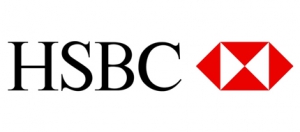
Develop reports that were sensitive to regulatory needs while being relevant to the lines of business
Challenges
This programme was designed to help the UK Banking Compliance team absorb HSBC best practice and develop reports that were sensitive to regulatory needs while being relevant to the lines of business. Above all, they had to write reports to a professional standard.
Results
The overall value of the course is such that its scope is being expanded and scheduled for new team members. UK Banking Compliance sees ‘Report Writing for Compliance’ from GBS as a vital tool for strengthening the professionalism expected of them, now and in the future.
The brief
Audit reports now have a very high profile and the team is in the spotlight and under pressure.
The challenge was to put the UK Banking Compliance team, over a 100 staff, through an intensive course of written skills development. HSBC awarded the contract to GBS on the basis of our demonstrated track record in rapidly tailoring courses and our expertise in both report writing and financial regulation, combined to meet the challenge head on.
Engagement & Design
Our consultant designed and developed the workshops, as well as taking responsibility for their delivery. In this design we adapted tried-and-tested methods and focused on the need to plan and organise reports as well as develop the skills of analysis and writing.
The delivery of the programme was structured around existing reports and HSBC internal guidance. Each topic was built on the previous one, whilst the pace and interest was maintained by blending in word and language exercises. Feedback indicated that interest was heightened by varying the subject matter, and all content contributed to the central aim of being ‘professional’.
Delivery
The programme was delivered as a series of one day workshops, each tailored to the particular challenges faced by the separate teams.
Depending on function, some teams produced large reports that were reviewed at many levels within the organisation; others monitored activities and produced intermediate exception reports; others were responsible for translating external legislation into internal policies and monitoring practice across the industry.
The common elements consisted of organising, structuring and writing information in a way that made a real difference to the success of the compliance effort.
To further involve participants and ensure learning was as relevant as possible, the material chosen for review and analysis came from work supplied by delegates. This was prepared in advance to match a team’s needs. Delegates were encouraged to provide
- their personal response to the challenges of writing well
- feedback on what worked for them
- what they would take from the course
- how they might handle things differently next time.
Delegate ideas and experiences fed into workshop discussions and exercises. We updated later workshops to take account of the functional differences within the department, leading to changes of emphasis within topics. This was especially true for the materials analysed, which we discussed and updated in partnership with the compliance team managers.
We provided participants with best practice cards that highlighted the key factors that make writing effective. These help delegates reinforce their personal commitments following the workshop, e.g. using them to check structures, and prompt for reader-centric practices.
Outcomes
The positive evaluation feedback indicates that the teams experienced a real improvement in report preparation and positioning, as well as improved professional writing skills. Following the programme, UK Banking and Compliance discussed these benefits and recommended it to other departments outside compliance.
As a result of the course, compliance team members
• are more aware of HSBC best practice and more likely to use the internal style guide
• saw themselves as able to be more flexible in producing effective reports
• have a good grasp of the need for structure and why they use the HSBC structures
• gained valuable tips and techniques they could immediately apply to everyday work
• reported their level of confidence in their writing skills had been significantly raised
• felt they were better able to respond to the challenges they faced.
In this programme, UK Banking Compliance found answers that equipped its teams to tackle, with confidence, the increasing role of compliance monitoring.






